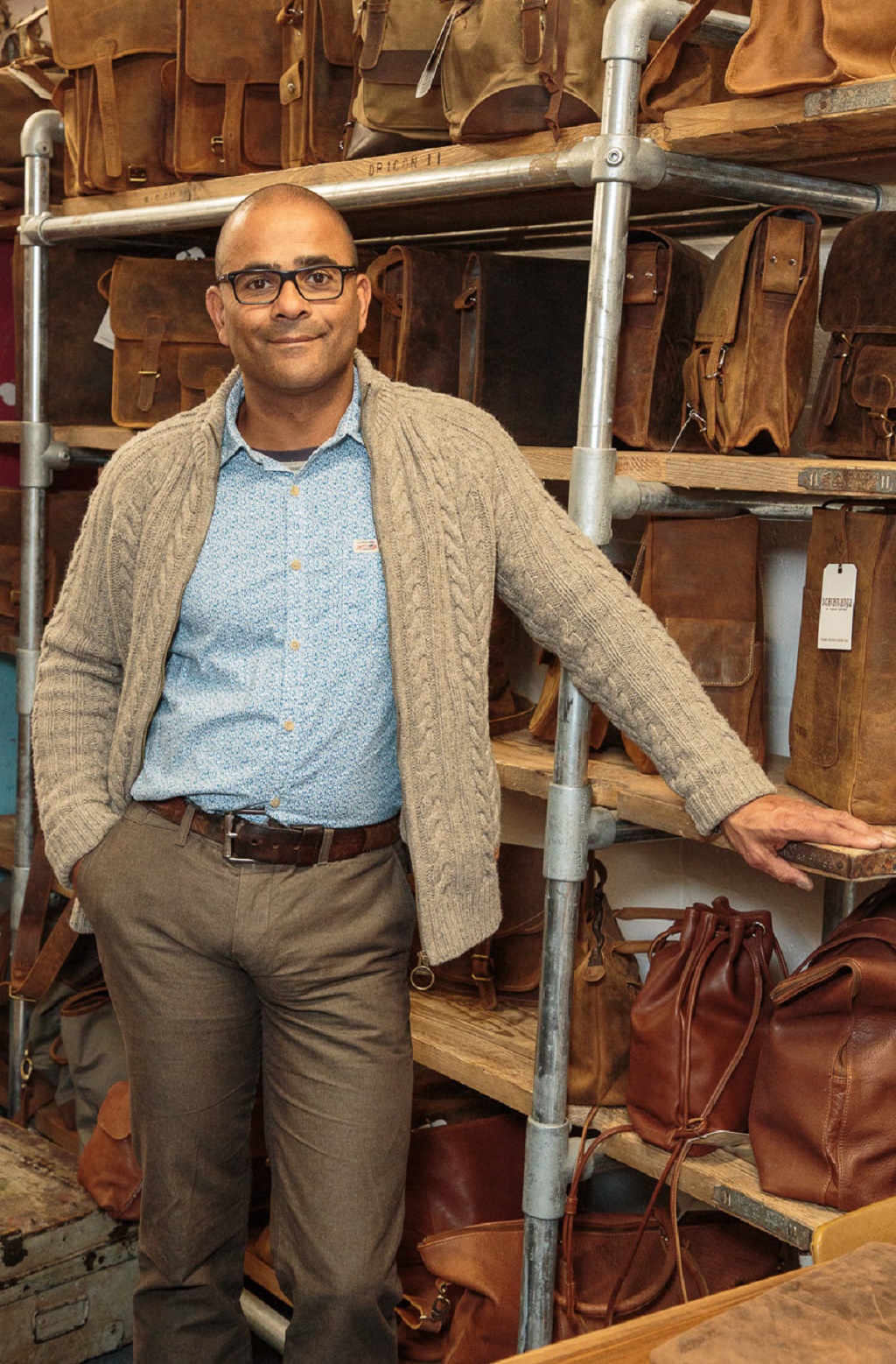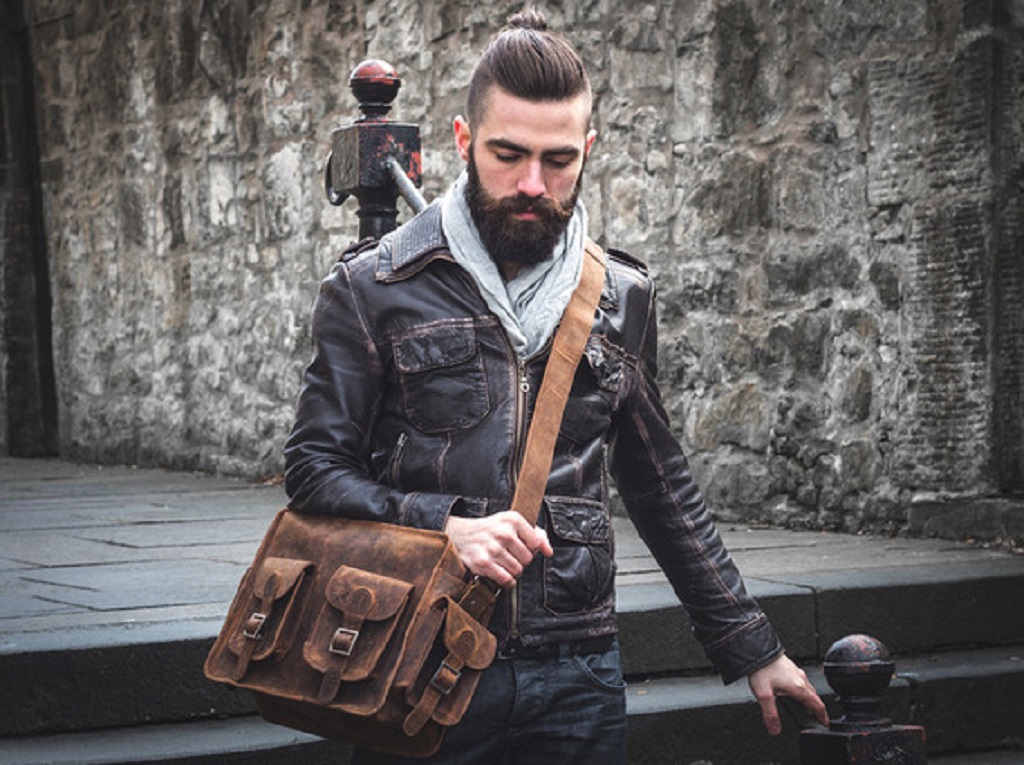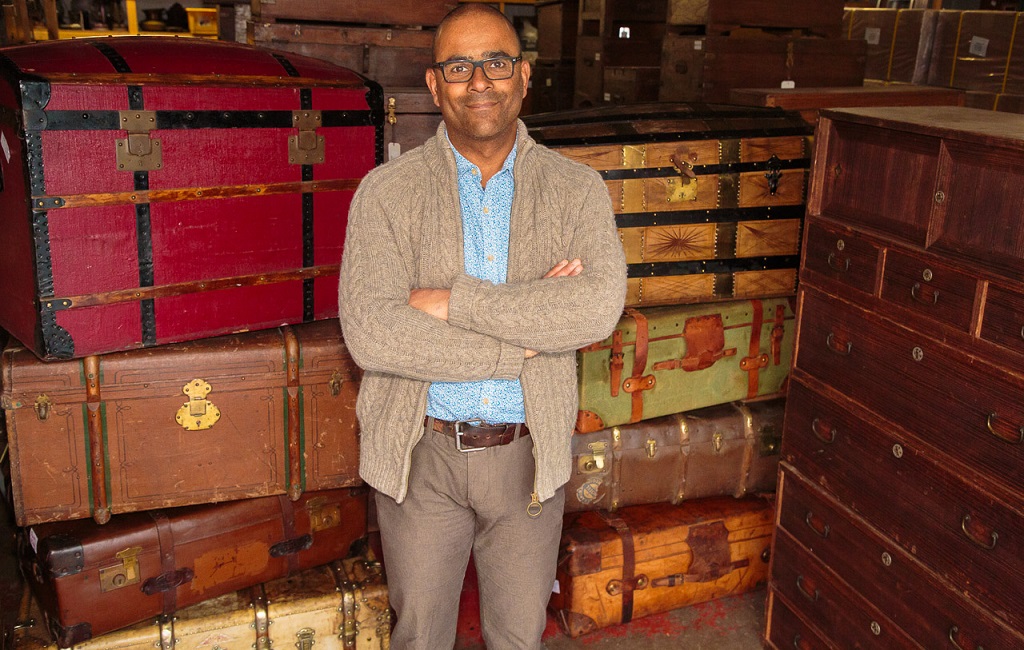
Scaramanga and the man with the golden touch
Scaramanga – it’s a name that conjurs up class, history, the exotic and craftsmanship.
Just to clarify, we’re not talking about the character brought to vivid life by Christopher Lee in the 1974 James Bond film The Man with the Golden Gun – we’re talking about the leather goods and handmade business in Fife!
Carl Morenikeji was the founder of the firm, importing quality, handmade goods from India, to their shop and distribution centre in Cupar, Fife.
Scaramanga is a renowned award winning leather bag and leather satchel maker and vintage furniture and interiors stockist.
They are insired by iconic British vintage leather bags, but given a modern twist, and their experienced design team develop exclusive designs, whether for laptops, flight bags or just normal everyday use. Each bag is lovingly handmade using skilled leather workers, traditional techniques and tools to create affordable classic leather bags for men, women and children.
Carl explained: ‘When I started the business up, as you do in its infancy when you’re writing the plan, you need a name. I studied business at university, and marketing, so I knew that having the right kind of name was very important.

Carl Morenikeji with some of the goods offered by Scaramanga
‘I could have gone for names like “Vintage Furniture” or “Vintage Satchels”, but I wanted to give it something that would make it have impact, and wanted to go with a name that lent itself to anything. I love James Bond, and I think the film The Man with the Golden Gun is one of the best, with the villain being named Scaramanga. It’s a memorable name, easy to spell, and it does have a retro vintage feel, without being obvious.’
‘I visited India. I was working for BT at the time, for the internet division and their start-up group. I decided to take a year out and spent six months in India. I loved everything about the country – and then I discovered the leather produced there – the colours, the smells and the textures. Everything was made by hand, by artisans.
‘I spotted an old leather satchel, in a place near the border with Pakistan, and it was wonderful – the kind of bag Indiana Jones wore. I bought it, with hand-bound journals, and carried on travelling. This was in 1999.
‘People loved everything I brought home, then I went back to work for BT. My girlfriend, who’s now my wife, and I moved to Edinburgh, and from there, to Fife. I didn’t want to continue to commute to Edinburgh from there, so I decided to start my own business, sourcing the items I had seen when I was travelling.

A vintage leather flight bag
‘I went back to India with £2000 and three empty suitcases. I went back to where I had been travelling and bought satchels, wooden boxes, hand-bound journals and it all started from there, those three basic items.
‘I ordered another 10 satchels, having had an initial 10, and it grew and grew. I continued this for a couple of years, but the satchels and bags were going really well, and then we started on the furniture, which I had brought over.’
Carl’s father ran his own furniture making business for over 30 years, which allowed Carl to pick up some basic restoration techniques over the years.
However, he is very particular about the products which Scaramanga sells, with each item being made specifically to be brought back to Scotland.
They offer classic antique and vintage furniture, including wooden trunks and chests, vintage leather suitcases, travel trunks, cabinets and cupboards, vintage textiles and bedcovers.
Carl explained: ‘Everything we sell isn’t mass produced. It’s handmade by experts. We order the bags and satchels in batches of 50, which we will then receive in a couple of weeks.
‘We could have everything mass produced in China – the bags would be all the same size and so on – but that’s not what we’re about. We want to have the vintage look, and being handmade means each one is slightly different. We want our products to be unique, so even if two people buy they same item, they will be subtley different.

Carl Morenikeji curated Scaramanga’s autumn collection after seeing a future home furnishing trend
‘In the past five years, people have become very conscious about where their products are being sourced from. They don’t want people being paid a low wage, or to buy items made in conditions where people are not treated well.
‘We’ve now worked with the team in India for nine years, and there’s been no more than 10-12 people employed there in that time. That shows you they look after the people. I go over every six months to a year, and I’ve seen the same people there over the last few years.
‘People want to know how their products are made – they want pictures to see for themselves, and to see the people who are, for example, restoring the furniture. It’s added value, that we can prove to our customers that the people are well treated and paid a fair wage.
‘I was actually approached by someone who said they could give us 500 bags in a week, but that isn’t what Scaramanga is about. Our products are made by people, who undergo a training programme of three or four years, and they can work their way up to become a team leader. ‘
As well as the team in India, there’s also a workforce in Scotland.
Carl added: ‘We have a staff of nine, here in Scotland, including myself. We have three in customer service, dispatch and packing, one or two work in preparing the furniture and packing it, one in accounts and someone in the shop. Everyone has separate roles, but we try to upskill everyone to make sure there is continuity, so if people need holidays or time off, others can step up and fill in for them seamlessly. It’s quite flexible and dynamic.’
TAGS

